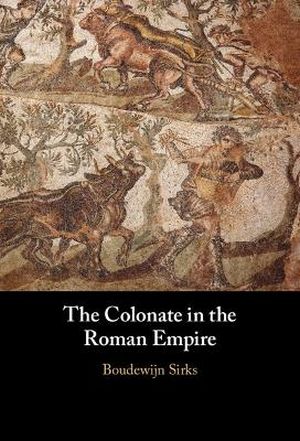We are now closed for the Christmas and New Year period, returning on Monday 5th January 2026. Orders placed during this time will be processed upon our return on 5th January.

The fourth and fifth centuries AD gave rise to a particular phenomenon in the Roman Empire: the colonate. The colonate involved the fiscal regulation of a relationship of surety between landowners and farmers in the later Roman Empire and played a major role in agrarian and social relations, with implications for these farmers' freedom of movement and transmission of status. This study provides a clear and comprehensive reassessment of the legal aspects of the phenomenon, embedding them as far as possible in their social and economic contexts. As well as taking the innovative approach of working retrogradely, or backwards through time, the volume provides a thorough assessment of two critical sources, the Theodosian and Justinian Codes, and will therefore be an invaluable resource for students and scholars of Roman law and the agricultural and social history of late antiquity.